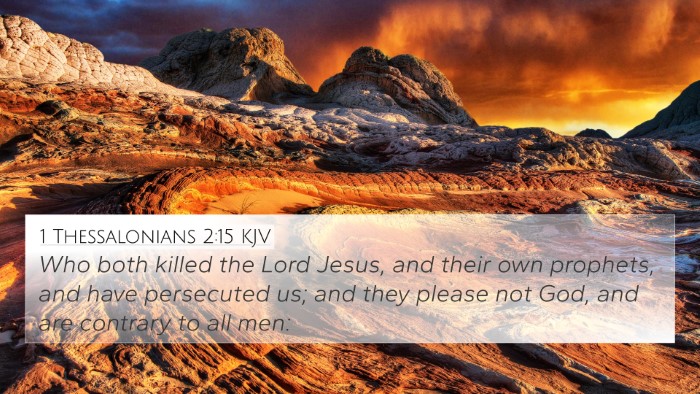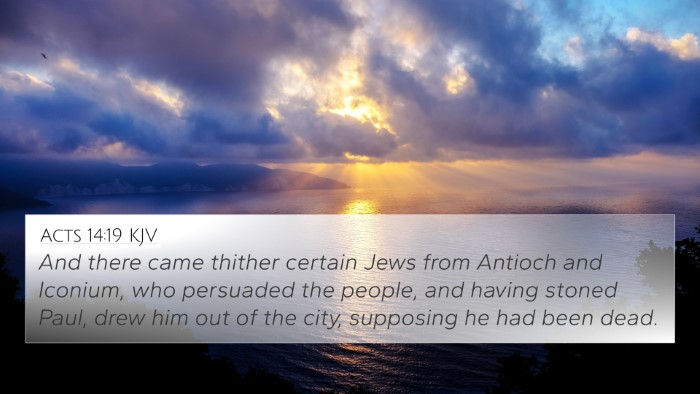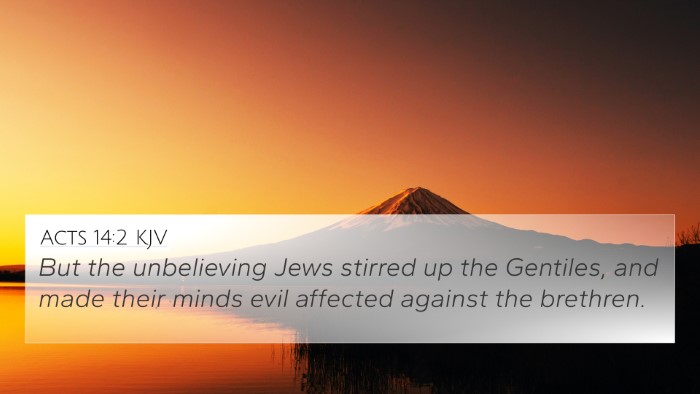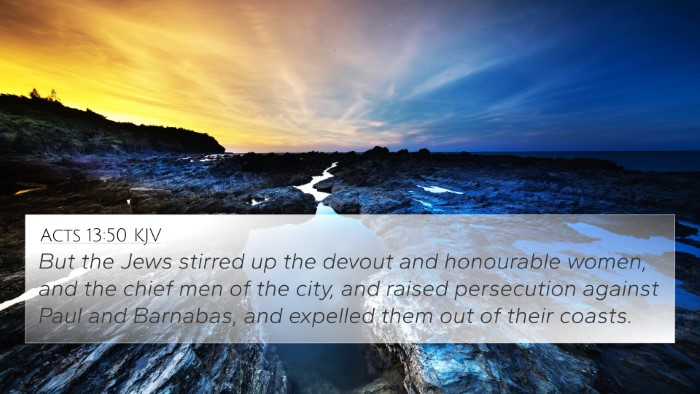Understanding Acts 9:23
Acts 9:23 provides a pivotal moment in the early life of the Apostle Paul, detailing the challenges he faced after his dramatic conversion. As we explore the meaning of this verse, insights from public domain commentaries reveal significant themes, connections, and the historical context surrounding Paul's ministry.
Verse Context
Acts 9:23 states: "And after that many days were fulfilled, the Jews took counsel to kill him." This verse captures the immediate aftermath of Saul of Tarsus’ conversion, illustrating a profound transition from a persecutor of Christians to a leader in the faith.
Commentary Insights
Matthew Henry elaborates on the verse by highlighting the determination of the Jews to eliminate the threat that Paul represented. Henry notes that Saul’s sudden transformation drew suspicion and ire among the Jewish leaders, as they realized the dangerous potential of his new faith.
Albert Barnes emphasizes the strategic planning by the Jews. He observes that their counsel to kill Paul demonstrates both a threat to his life and the serious opposition he faced as a fledgling apostle. This suggests that such fervent opposition was common for early Christians, providing a context of suffering linked to discipleship.
Adam Clarke adds depth by pointing out that Paul, once a persecutor, now faced the grim fate he had formerly imposed on others. Clarke conveys that this turn of events highlights both divine sovereignty in calling Paul and the inherent risks of following Christ amidst persecution.
Thematic Connections
Theological themes stemming from Acts 9:23 include:
- Persecution and Faith: Early believers often faced severe repercussions for their beliefs, a pattern seen throughout scripture.
- Transformation: Saul's journey from persecutor to preacher speaks to the transformative power of faith.
- Divine Protection: Despite the threats, the overarching narrative assures believers of God’s protective hand.
Cross-References
Several scriptures resonate with the themes found in Acts 9:23, and exploring these connections is essential for a comprehensive understanding:
- Matthew 5:10-12: Speaks about the blessedness of those persecuted for righteousness' sake.
- John 15:20: Jesus warns that if they persecuted Him, they would also persecute His followers.
- 2 Corinthians 11:23-27: Paul recounts the sufferings he faced in ministry, providing a firsthand account of persecution.
- Acts 14:22: Paul encourages believers that the kingdom of God is often entered through much tribulation.
- 1 Peter 4:12-16: Peter writes about not being surprised by fiery trials, which parallels Paul’s experiences.
- Philippians 1:29: Paul reminds the Philippians that it has been granted to them not only to believe in Christ but also to suffer for His sake.
- Romans 8:31-39: Assures believers that nothing can separate them from the love of God, in light of present suffering.
Comparative Analysis
By examining Acts 9:23 alongside these cross-references, we cultivate a deeper understanding of the common challenges faced by early Christians:
- Strategies of Opposition: Similarities emerge in how Jewish leaders respond to burgeoning Christian movements throughout the New Testament.
- Encouragement in Trials: Both Paul and Peter provide significant reflections on suffering that resonate with believers today.
- The Role of Community: The New Testament consistently illustrates the necessity of a supportive Christian community during times of persecution.
Applications for Today
Understanding the implications of Acts 9:23 can encourage modern believers to remain steadfast in faith amidst adversity. Here are some practical applications:
- Resilience: Learning from Paul's experiences boosts our resolve during personal trials of faith.
- Community Engagement: We are called to support one another as a body of believers, reflecting the early church's unity.
- Continuous Prayer: We should uphold those facing persecution in our prayers, remembering that they are part of the body of Christ.
Conclusion
Acts 9:23 serves as a powerful reminder of the challenges faced by the early church and the faithfulness required by its leaders. Through cross-referencing related scriptures, we uncover the rich tapestry of God's work amidst persecution, affirming the strength found in community and shared belief.












